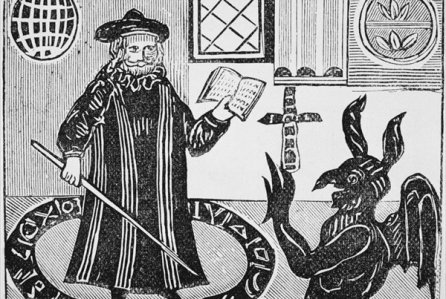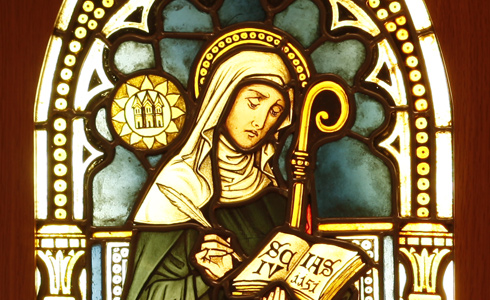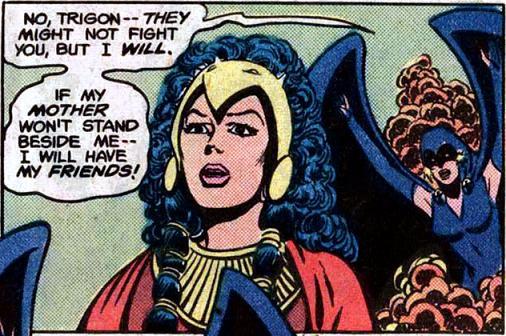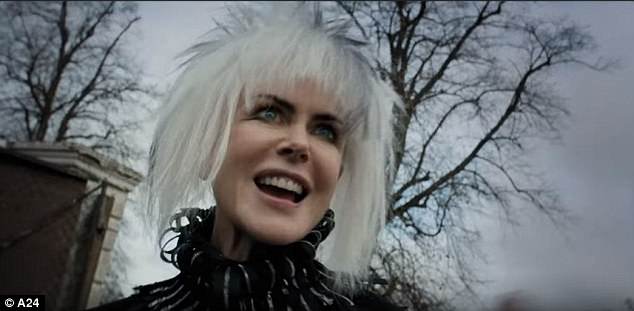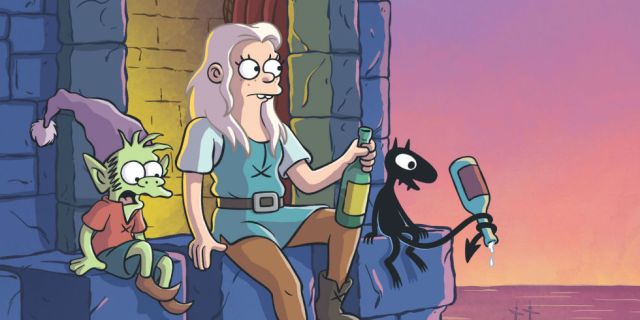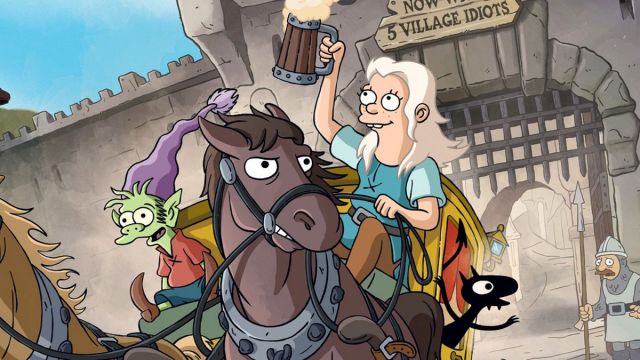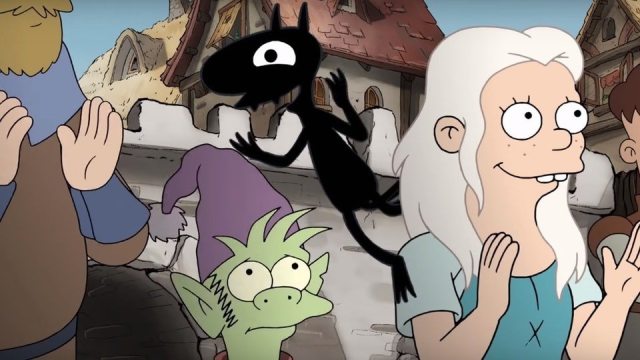Unpopular opinion: Newt Scamander is a far more compelling hero than Harry Potter ever was.
Okay! Now that we’ve gotten that out of the way, let’s get this started.
Oh, by the way. Spoilers are freely written below, so, read at your own risk.

I heard a lot of bad press about The Crimes of Grindelwald, some of which I agreed with and understand: The ending twist is dumb and overcomplicates things for no justifiable reason). However, I think everything up to that point is refreshing, entertaining, and engaging. There was not a moment I was bored, tuned out, or disinterested. Even during the action scenes, which I usually lose interest in quickly, I was attentive and excited. Come on, how can you tell me Newt riding a cat-dragon thing into battle is not awesome?
The film is visually stunning, and not just with the fantastic beasts themselves. The various locales, action sequences, and sorcery are varied and just beautiful in general. Our journey into new corners of the Wizarding World is highly enjoyable. The addition of a circus of magical creatures (as shady as it was) is an interesting concept worth further exploration. I loved the statue portal, personally. And there are clever things like this sprinkled throughout, showcasing J. K. Rowling’s amazing world building talents. Whenever something from the Harry Potter films appears, it doesn’t come off as a cheesy Easter egg or callback, but instead is well-integrated a just being an established part of this world.

The final battle with Grindelwald is perfection. The build-up creates a quiet, unsettling tension. You sense the threat. You feel enclosed by the crowd of enemies. You know not everyone is going to make it out of this. The best thing I can liken it to is a boss fight in a video game. Grindelwald is intimidating in his careless confidence, and the heroes are humanized by the fact that they know they’re likely to fail, but have to serve their duty. There are real stakes. Mortal blows are all too near. I appreciate the bluff, making the audience think that Leta would join Grindelwald, which would have been an easy, predictable turn of events. It shows the uniqueness of Fantastic Beasts that they used the opportunity to redeem Leta. If only she’d been developed properly…
I liked that despite Newt’s dislike of his establishmentarian brother, after Leta’s death, they support each other in an emotional embrace. They had lost someone they loved, and both knew this was what mattered in the moment. Lesser films would have taken the opportunity to cause more strife between them in order to build a cheap, easy conflict that ultimately just hinders the plot. I could imagine them fighting over who Leta loved more, who Leta should have married, et cetera, et cetera… You know, cliches.

One gripe among viewers and critics was that the format was boring. There wasn’t much of a sense of urgency, no obvious character arcs, and overall it just seemed to be a bridge to the next film. I will say this, and it is highly subjective: As a jaded film lover who’s seen so many movies that I can usually predict what will happen next, down to the lines about to be delivered, I am happy to see a film successfully (key word) pull off a different format. It’s not just transitioning from action sequence to action sequence, from problem to problem. I find that format frustrating, and leans on the fact that the easiest ways to write a script is to use the format of, “The characters to this, BUT encounter an obstacle. Then, they do this. BUT, there’s another obstacle.” Instead, the characters are given a direction, a goal, and they move towards it. They achieve it, and then they are presented with a new direction. There’s a progression, not just a series of “whoops, we made a mistake and we’re fucked because someone was an incompetent idiot.” I get tired of the plot being driven by the characters being fools. I appreciate seeing a hero using their wits to move forward.

One of the complaints I heard was Queenie joining Grindelwald. It might seem like an excuse, sure, I will give you that, but my casual assumption was that she was under the Imperius Curse. If that turns out to not be the case, I will admit, it is inexplicable and dumb.
One critic even accused Queenie of being a Harley Quinn rip off. This is one of the stupidest things I’ve ever heard. Is this critic somehow unaware that Harley and Queenie’s accent is a real one that actual humans have? Furthermore, classic Hollywood films are full of women that fit Queenie’s mold much more closely than Harley Quinn. Has this professional critic never seen a classic movie? You lose credibility for me on that point. It’s a stupid assumption that shows a lack of knowledge of your subject matter, and a general lack of culture.
(A lot of Queenie hate, I notice.)
Of course, a great multitude of criticisms involve Nagini, and the unexpected revelation that Voldemort’s snake Horcrux was once a woman. I’ll admit, that’s a surprising left turn, but I don’t see it as necessarily bad. I hope Nagini gets further developed, because I think she could be interesting. I don’t think the portrayal of Nagini as an Asian woman is racist, especially as the actress herself wasn’t concerned with it. It’s too complex and issue to delve into here, so I’ll leave it at that. As for other problems with her character, I’ll get back to Nagini in a minute.

Unfortunately, due to the large cast of characters, some great characters don’t have much to do, or are passed over for characters with more immediate importance. Jacob, Tina, and Nagini are probably the most major victims of this. Tina just happens to be present during scenes, but doesn’t actively affect the events much. Jacob is pretty much only there to interact with Queenie. Nagini is just introduced, and then promptly set aside for (hopefully) later development. A shame.
I do have my share of “are you fucking kidding me” moments, however. First off, Newt saying without a hint that he was joking that if he traveled abroad, he’d be thrown straight into Azkaban. Does the Wizarding World have no scale for varying crimes? It’s absurd. Allied with Voldemort? It’s Azkaban for you. Drunk in public? Hope you like Dementors. Loitering? Enjoy spending the rest of your life in an endless void of despair. It’s ridiculous (no pun intended). If it was supposed to be a joke, they should have telegraphed that better.
I also agree with the complaint of Nagini and Leta being underdeveloped to the point of us not being particularly interested in them. While Leta does prove herself a general bad ass for her attempted assassination of Grindelwald, we don’t know much about her other than 1) Newt is in love with her, and 2) she unintentionally killed her baby brother. It doesn’t give us an opportunity to relate to her, actually makes her downright unlikable, and doesn’t give us a picture of her character as an adult.

Finally, my biggest complaint is Ezra Miller’s overacting, which crops up throughout the film, but really culminates in the final scene, where he blows out the window. Are. You. Fucking. Kidding. Me? Don’t do that face. Don’t do that ugly face. Nobody does that face. The way he pursed his lips and scrunched up his face really killed the mood for me. What should have been a shocking and emotional moment (despite it being a lame twist) instead made me grimace, and laugh at the absurdity of his exaggerated attempt at emoting. He really is the Anakin Skywalker of the Potterverse. I hope they’re smart enough to kill him off soon. I don’t see his character as becoming interesting or in any way redeemable.
As a Feminist, I feel I have to address the elephant in the room. Johnny Depp, and his spousal abuse. I honestly don’t feel comfortable with the fact that I technically supported him by paying to see this movie. I think his career should die. I think Grindelwald should have been recast, despite the fact that it would be jarring and possibly confusing to some more casual moviegoers to suddenly see a different actor in the role. I will admit, Depp did an excellent job as an actor. This role made me realize, before he started getting cast in trash like Alice in Wonderland and The Lone Ranger, he was actually a superb actor. This doesn’t excuse him being a deplorable human being, and I don’t think wife beaters should be given such high profile jobs.

Ultimately, despite everything The Crimes of Grindelwald had going against it, it succeeds in being a unique and engaging experience, equal or surpassing its predecessor, and is a worthy entry into the stories of the Wizarding World.
If you like what I’m doing on this blog and would like to support, consider making a donation via ko-fi.




